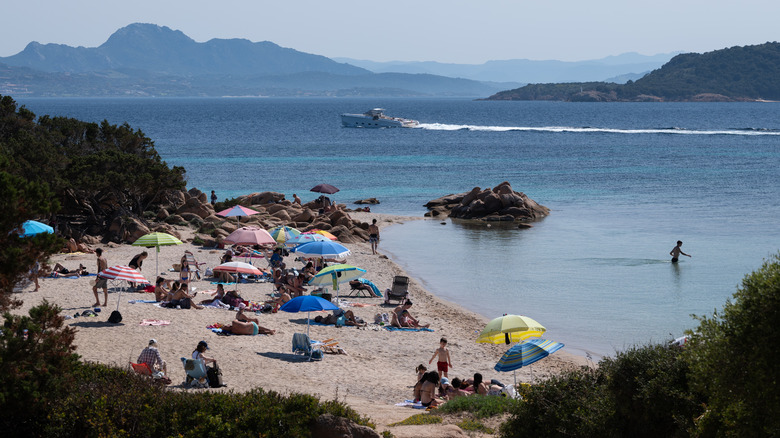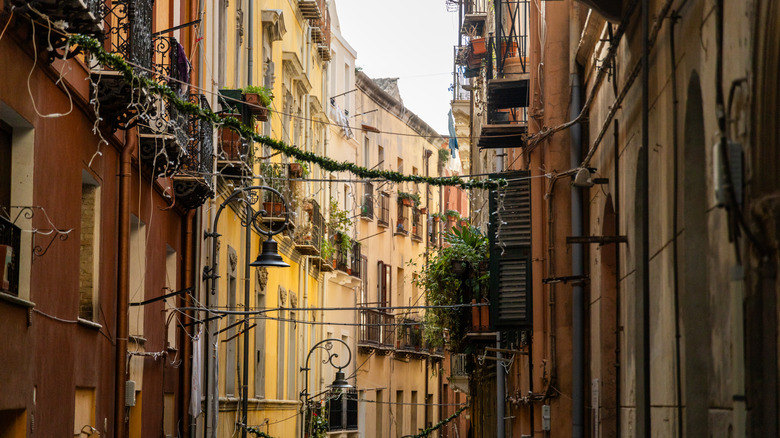The sands of Sardinia are so pearly white, you almost want to take some home. That’s one reason tourists come to this Mediterranean island, to bask in the sun-bleached beaches and transparent opal waters. Walking over its powdery grains feels like the earth is hugging your feet. You could just imagine filling a mason jar with these sands, or a wine bottle, or a terrarium. Beaches come in every color, and many are beautiful to behold; but there’s something pure and magical about these gleaming dunes. Surely you could walk away with a water bottle full of sand and nobody would notice. Sardinia has nearly 1,150 miles of coast! Who would get into a tizzy about one tiny sample?
Well, think again: The government of Sardinia cares very much about its sand, as well as its shells, fossils, and other natural debris. If you’re caught trying to smuggle these items out, you could be fined up to $3,248. They’re not kidding around: Tourists have been arrested for trying to pilfer pebbles and stalagmites from Sardinia’s shores, and many have been threatened with jail time. Italy may feel like a freewheeling country in certain ways, but there are many things tourists should never do when visiting, and eroding the beaches of Sardinia in order to have a fun keepsake is utterly disrespectful — and a bona fide crime with painful consequences.
These kinds of laws have become popular around the world, as ocean-bordering nations attempt to protect their coastal environments. “Beach thefts” have a cumulative effect, especially in well-trafficked destinations, which can damage ecosystems and ruin a place’s natural beauty. And given Sardinia’s history, it’s no wonder they’re prickly about it.
Why Sardinia protects its beach sand
Sardinia, a gem in the Mediterranean
Sardinia is a wonderful place to visit, with its unique culture, little-known history, and rugged scenery. Unlike obscurer Mediterranean islands, like Cyprus or Crete, Sardinia shares language and architectural style with the rest of Italy, so much of this region will feel familiar and accessible. If you’re flying into the island, you’ll most likely touch down at Cagliari Airport, located just outside Sardinia’s capital and largest city. Cagliari is a dense city with tile roofs and old narrow streets, the classic portrait of Mediterranean living. From the moment you check into your hotel, you can plan a walk to Poetto Beach, one of those white-sand beauties that extends a full 5 miles. This is a good thing, as massive crowds have given this place the nickname “Spiaggia dei Centomila,” or “Beach of a Hundred Thousand.”
The periphery of Sardinia is stippled with hotels, and if you’ve endured the suffocating prices of Western Europe, you’ll be astonished at the $100 to $150-per-night deals you can snatch at island accommodations. While you’re exploring these epic coasts, consider a stop at the breathtaking beaches of the Golfo di Orosei, where sands and cliffs dominate a 20-mile coast. There is so much to love about this overlooked land mass, and beachgoers could explore its fringes for months. Just remember to leave the scenery where it is.




